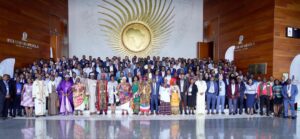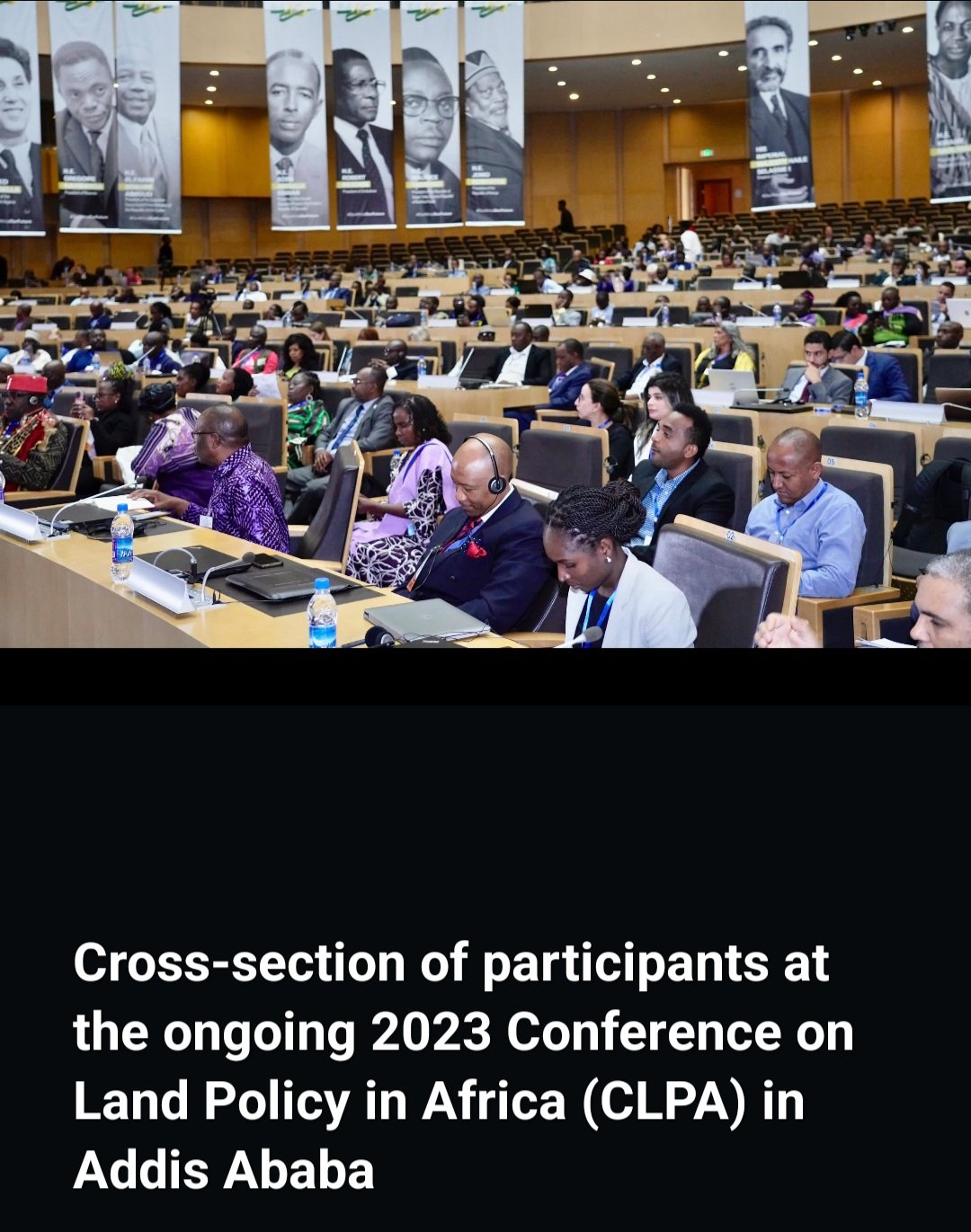Land governance plays a crucial role in unlocking the productive capacities of Africa, says Mr Claver Gatete, the Executive Secretary of the Economic Commission for Africa (ECA).
Gatete made the remark on Tuesday in Addis Ababa at opening ceremony of the 2023 Conference on Land Policy in Africa (CLPA).
Gatete was represented at the event by Robert Lisinige, acting Director, Private Sector Development and Finance division at the ECA.
Gatete highlighted the significance of sound land governance systems in facilitating various stakeholders.
This, he said, include youth, women, communities, and the private sector, to engage and benefit from initiatives such as the African Continental Free Trade Area (AfCFTA) and digitalisation.
According to him, good land governance promotes secure access to land, and creates an enabling environment for investments that are key to unlocking the productive capacities of Africa.
“Good land governance will support agro-industrial parks, infrastructure and renewable energy, all needed ingredients for industrialisation and trade.
“At the regional level, harmonisation of land and related policies in light of the protocol on investment and other trade related protocols will facilitate cross border movement of people, regional investments and trade.
“Continental and regional institutions are, therefore, key to ensuring coherence in regional aspirations for trade and investments; and underlying policy and regulatory environment, including in the land sector,” he said.
Gatete explained that inclusive digital technologies could support land and trade policy-making processes through data driven decision-making.
He said this would be by harnessing the power of digitalisation, opportunities for reform, job creation, climate change mitigation and adaptation, while addressing food needs that could be identified.
“With population growth and rapid urbanisation, the food industry will continue to grow in the coming years.
“Investmenting in the capacity of farmers to increase production will be vital.
“Equally important will be investment in research institutions, to develop models of appropriate and sustainable agro-processing, technological innovations and implementation of land and agriculture policies that are forward looking,” Gatete said.
“It is at the heart of many of us as we explore ways in which the African citizenry can maximally benefit from their land and its resources.
“This is by taking advantage of the opportunity that enhanced trade brings, to boost sustainable and inclusive development and environmental stewardship,” he said.
Gatete emphasised that the AfCFTA has the potential to lift 30 million people out of extreme poverty, boost Africa’s income by 450 billion dollars, and connect 1.3 billion people.
According to him, this is significant in view of the youth bulge and opportunities of an ever- accelerating digitalisation, including in land-based sectors such as agriculture.
“Through several commitments, Africa is committed to agro-industrialisation for value addition and economic diversification, as a basis for enhancing the benefits of the AfCFTA.
“Through digitalisation, therefore, there is great potential for the youth to tap into the growing agriculture and agribusiness sector, projected to be one trillion dollars by 2030.
“This is a low hanging fruit, given most of Africa’s youths, about 40-60 per cent of them, are already engaged in agriculture and agribusiness, ” he said.

Gatete also enjoined participants to be innovative in seeking solutions that impact the livelihoods of youth, women and smallholder producers.
His words: “After all, they constitute Africa’s largest private sector and an integral part of our quest to find climate smart solutions.
“How can land policies and land administration be more inclusive and guard their interests?
“How can land governance secure land rights and advance agro-industrialisation to increase productivity and value addition in land based sectors?
“How can land governance enhance economic integration? Are there potential unintended consequences of increased trade on the vulnerable groups that depend on the land? How can land policy development and implementation mitigate these impacts?”
Also at the opening ceremony was Dr Vanessa Ushie, acting director, Africa Natural Resources Management and Investment Centre at the African Development Bank (AFDB) Group.
She was represented by Ms Kanziemo Leontine, Advisor, Natural Resources Management at the AfDB.
Others were Hand Lundquist, Ambassador of Sweden to Ethiopia, Djibouti and permanent representative to African Union and the ECA; and Amb. Jisefa Sacko, Commissioner for Agriculture, Rural Development, Blue Economy and Sustainable Environment at the AU. (NAN)
Edited by Olawunmi Ashafa












